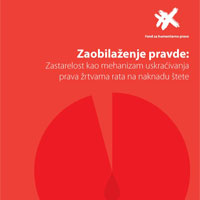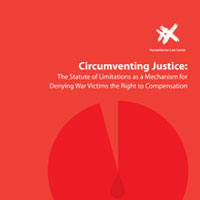Policy Paper: Improving the Status and Rights of Victims and Witnesses in War Crimes Proceedings in Serbia
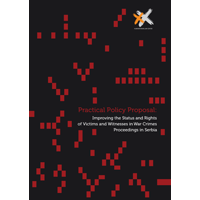
 The role of victims in war crimes proceedings is irreplaceable, as their testimonies in these proceedings are often the key evidence that can support the allegations in the indictment. In order to ensure a smooth and efficient trial, it is crucial that victims have the support of the institutions responsible for prosecution, and that they are informed about court proceedings and their rights, so that their testimony is of as high a quality as possible, but the consequences for them in life afterwards as minimal as possible. The attitude of the competent judicial authorities towards victims greatly affects their decision to participate in criminal proceedings, as well as their sense of confidence in the judicial system. In view of the fact that giving testimony is very traumatic for many victims, it is vital that the judicial system recognises the needs and concerns of the victims and provides them with the support and necessary information to reduce re-traumatisation and, at the same time, prepare them for quality testimony.
The role of victims in war crimes proceedings is irreplaceable, as their testimonies in these proceedings are often the key evidence that can support the allegations in the indictment. In order to ensure a smooth and efficient trial, it is crucial that victims have the support of the institutions responsible for prosecution, and that they are informed about court proceedings and their rights, so that their testimony is of as high a quality as possible, but the consequences for them in life afterwards as minimal as possible. The attitude of the competent judicial authorities towards victims greatly affects their decision to participate in criminal proceedings, as well as their sense of confidence in the judicial system. In view of the fact that giving testimony is very traumatic for many victims, it is vital that the judicial system recognises the needs and concerns of the victims and provides them with the support and necessary information to reduce re-traumatisation and, at the same time, prepare them for quality testimony.
Over the past 16 years, since the establishment and operation of the War Crimes Department of the Higher Court in Belgrade, the Humanitarian Law Centre (HLC) has identified a number of deficiencies in the victim and witness support system in war crimes proceedings. Some of the shortcomings are: an inadequate normative framework governing the status of victims and witnesses; the insufficient capacities of the institutions in charge of assistance and support to victims and witnesses during all stages of criminal proceedings; and the insufficient training and sensitivity of employees in institutions competent for war crimes proceedings.
The Policy Paper: Improving the Status and Rights of Victims and Witnesses in War Crimes Proceedings in Serbia analyses the legal and institutional framework governing the rights of victims and witnesses, and identifies existing problems regarding the status of victims and witnesses, with the aim of proposing recommendations to the institutions of Serbia responsible for war crimes prosecutions for improving the conditions under which victims testify during criminal proceedings before the courts in Serbia.
The Policy Paper is available here.






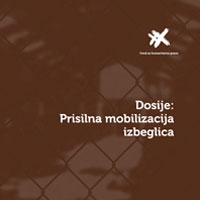
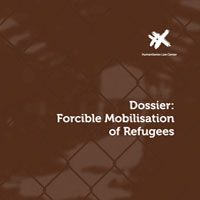 From the outbreak of war in Croatia and BiH, and especially in connection with the Croatian military-police operations “Flash” and “Storm”, about 500,000 Serbs, citizens of Croatia and BiH, fled to Serbia. Tens of thousands of Serbs from Croatia fled to Serbia during 1991 and 1992. They mostly exchanged their houses and property with Croats from Vojvodina, who, under pressure from the Serbian Radical Party and paramilitary groups, left Serbia. At least 200,000 people fled Croatia from May until the end of August 1995, during and after the “Flash” and “Storm” operations of the Croatian Army and the MUP. Most of the refugees were accommodated in reception centres across Serbia, in old hotels, unused public facilities, or with relatives and friends, and only a few were able to rent an apartment.
From the outbreak of war in Croatia and BiH, and especially in connection with the Croatian military-police operations “Flash” and “Storm”, about 500,000 Serbs, citizens of Croatia and BiH, fled to Serbia. Tens of thousands of Serbs from Croatia fled to Serbia during 1991 and 1992. They mostly exchanged their houses and property with Croats from Vojvodina, who, under pressure from the Serbian Radical Party and paramilitary groups, left Serbia. At least 200,000 people fled Croatia from May until the end of August 1995, during and after the “Flash” and “Storm” operations of the Croatian Army and the MUP. Most of the refugees were accommodated in reception centres across Serbia, in old hotels, unused public facilities, or with relatives and friends, and only a few were able to rent an apartment.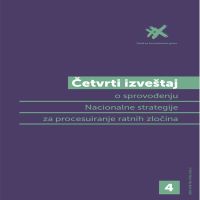
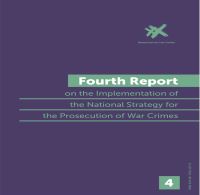
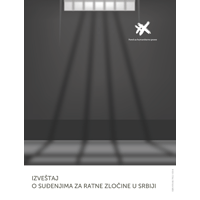
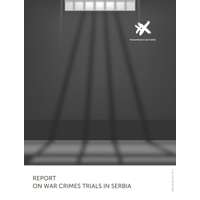 This is the seventh report of the Humanitarian Law Center (HLC) on war crimes trials in Serbia. The HLC has monitored all war crimes trials conducted in the territory of Serbia during 2017 and 2018, a total of 20 trials, conducted by the War Crimes Departments of the Higher Court in Belgrade or the Court of Appeal in Belgrade, including one trial conducted by a court of general jurisdiction. A brief overview of all cases observed, and the HLC’s key findings on each case of interest to the public, are provided in the Report.
This is the seventh report of the Humanitarian Law Center (HLC) on war crimes trials in Serbia. The HLC has monitored all war crimes trials conducted in the territory of Serbia during 2017 and 2018, a total of 20 trials, conducted by the War Crimes Departments of the Higher Court in Belgrade or the Court of Appeal in Belgrade, including one trial conducted by a court of general jurisdiction. A brief overview of all cases observed, and the HLC’s key findings on each case of interest to the public, are provided in the Report.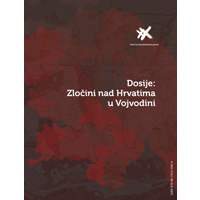
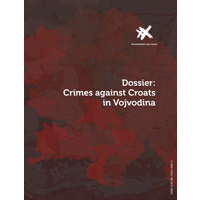 In the period 1991-1995, in the territory of the Autonomous Province of Vojvodina, there was a campaign of intimidation and pressure on Croatian civilians with the aim to force them to leave their homes, and Serbia as well. The campaign, the intensity of which changed and reached its highest peaks in the second half of 1991, from spring to autumn 1992 and in summer of 1995, resulted in the expulsion of several tens of thousands of Croats from Vojvodina. Violence against Croats in Vojvodina included attacks on their private property and religious buildings, as well as threats, physical attacks and murders.
In the period 1991-1995, in the territory of the Autonomous Province of Vojvodina, there was a campaign of intimidation and pressure on Croatian civilians with the aim to force them to leave their homes, and Serbia as well. The campaign, the intensity of which changed and reached its highest peaks in the second half of 1991, from spring to autumn 1992 and in summer of 1995, resulted in the expulsion of several tens of thousands of Croats from Vojvodina. Violence against Croats in Vojvodina included attacks on their private property and religious buildings, as well as threats, physical attacks and murders.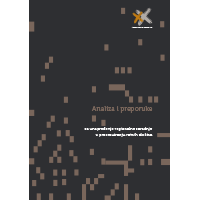
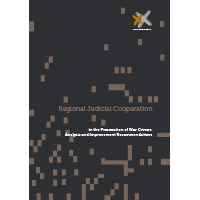 In consequence of the cross-border nature of the armed conflicts in the former Yugoslavia, victims, witnesses, perpetrators and evidence are not for the most part located within the territory of a single state and do not fall within the competence of a single national judiciary. Additionally, due to the fact that almost all former Yugoslavia successor states ban the extradition of their own nationals to face trial in other countries, prosecution of war crimes is unthinkable without an effective cooperation among the countries in the region. Given the importance of the fight against impunity for war crimes, regional cooperation is among the key commitments that Serbia undertook as part of its European Union (EU) Accession negotiations.
In consequence of the cross-border nature of the armed conflicts in the former Yugoslavia, victims, witnesses, perpetrators and evidence are not for the most part located within the territory of a single state and do not fall within the competence of a single national judiciary. Additionally, due to the fact that almost all former Yugoslavia successor states ban the extradition of their own nationals to face trial in other countries, prosecution of war crimes is unthinkable without an effective cooperation among the countries in the region. Given the importance of the fight against impunity for war crimes, regional cooperation is among the key commitments that Serbia undertook as part of its European Union (EU) Accession negotiations.
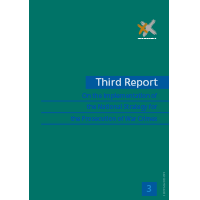 The Humanitarian Law Center (HLC) has been monitoring and providing support to war crimes trials ever since the first war crimes proceedings conducted in Serbia in 2002. The HLC is the only organization that has been continuously monitoring and analysing war crimes trials in Serbia and informing the public at home and abroad about them. It has been representing victims (injured parties) in war crimes cases through an Attorney, filing criminal complaints with the Office of the War Crimes Prosecutors (OWCP) against suspected perpetrators, and sharing its documentation on war crimes. Also, the HLC has been identifying witnesses and victims and encouraging them to give evidence in court and thus contribute towards achieving justice for past crimes.
The Humanitarian Law Center (HLC) has been monitoring and providing support to war crimes trials ever since the first war crimes proceedings conducted in Serbia in 2002. The HLC is the only organization that has been continuously monitoring and analysing war crimes trials in Serbia and informing the public at home and abroad about them. It has been representing victims (injured parties) in war crimes cases through an Attorney, filing criminal complaints with the Office of the War Crimes Prosecutors (OWCP) against suspected perpetrators, and sharing its documentation on war crimes. Also, the HLC has been identifying witnesses and victims and encouraging them to give evidence in court and thus contribute towards achieving justice for past crimes.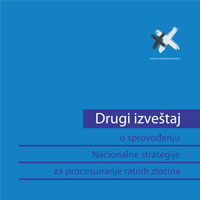
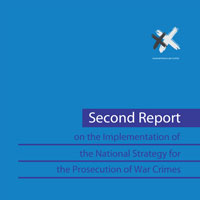 The Humanitarian Law Center (HLC) has been monitoring and providing support to war crimes trials ever since the first war crimes proceedings conducted in Serbia in 2002. The HLC is the only organization that has been continuously monitoring and analysing war crimes trials in Serbia and informing the public at home and abroad about them. It has been representing victims (injured parties) in war crimes cases through an Attorney, filing criminal complaints with the Office of the War Crimes Prosecutors against suspected perpetrators, and sharing its documentation on war crimes. Also, the HLC has been identifying witnesses and victims and encouraging them to give evidence in court and thus contribute to achieving justice for past crimes.
The Humanitarian Law Center (HLC) has been monitoring and providing support to war crimes trials ever since the first war crimes proceedings conducted in Serbia in 2002. The HLC is the only organization that has been continuously monitoring and analysing war crimes trials in Serbia and informing the public at home and abroad about them. It has been representing victims (injured parties) in war crimes cases through an Attorney, filing criminal complaints with the Office of the War Crimes Prosecutors against suspected perpetrators, and sharing its documentation on war crimes. Also, the HLC has been identifying witnesses and victims and encouraging them to give evidence in court and thus contribute to achieving justice for past crimes.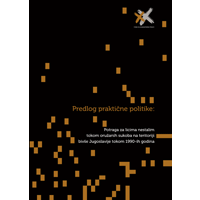
 The wars fought in the former Yugoslavia during the 1990s have left dire long-term consequences that the successor states of the former Yugoslavia will have to deal with for years to come. These states have yet to meet the challenge of dealing with systematic violations of human rights and of building democratic institutions, tasks that cannot be accomplished without taking a responsible approach towards dealing with the violent past. Such an approach is impossible without establishing the fate of the persons who are still unaccounted for as a result of the past armed conflicts.
The wars fought in the former Yugoslavia during the 1990s have left dire long-term consequences that the successor states of the former Yugoslavia will have to deal with for years to come. These states have yet to meet the challenge of dealing with systematic violations of human rights and of building democratic institutions, tasks that cannot be accomplished without taking a responsible approach towards dealing with the violent past. Such an approach is impossible without establishing the fate of the persons who are still unaccounted for as a result of the past armed conflicts.